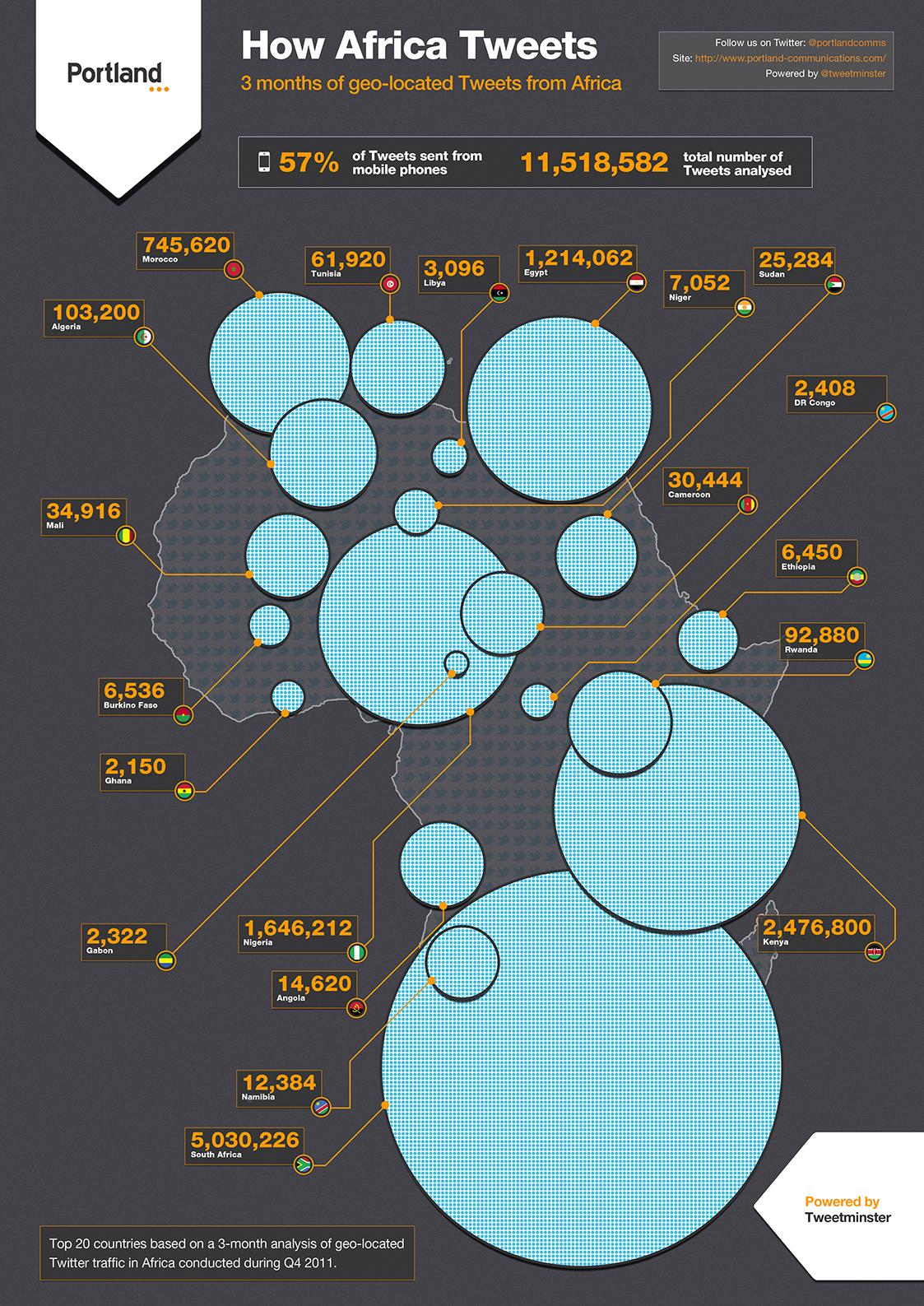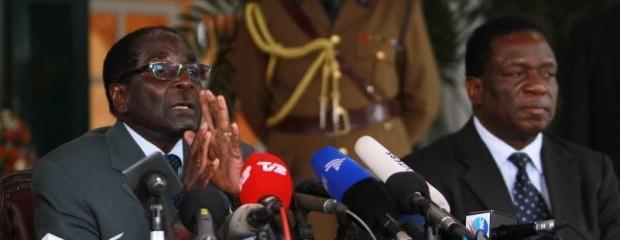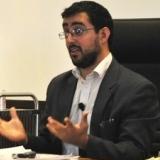How Africa tweets: New research documents Twitter’s key role – By Beatrice Karanja

 The key role of Twitter in the people’s revolutions in Egypt and Tunisia a year ago is well documented. Young people embraced the immediacy and freedom of the new social networking system to escape the constraints of censorship and the security apparatus, to organise and communicate.
The key role of Twitter in the people’s revolutions in Egypt and Tunisia a year ago is well documented. Young people embraced the immediacy and freedom of the new social networking system to escape the constraints of censorship and the security apparatus, to organise and communicate.
The vital part that Twitter played in bringing down these autocratic regimes is already being widely studied. But it has rather obscured the explosion in its use across the rest of Africa.
For Twitter is, by no means, the exclusive tool of political activists in North Africa. It has been adopted enthusiastically by young people right across the continent who are adapting it for their own far more varied daily needs.
These are the findings of the first ever attempt to map comprehensively Twitter traffic across Africa. They are part of a revolution which poses challenges not just for Governments who want a dialogue with their citizens or for businesses who want to talk to their consumers but to everyone for whom communication is important.
Twitter, which started in the United States, may have been in existence for less than six years but it has swept the globe. Over 300 million people took the opportunity last year to use their smart phones or computers to post and read short messages or “Tweets” every day. One in three does so every day, sending over 250 million Tweets – a number increasingly daily.
But despite the importance attached to Twitter in the democratic revolutions in North Africa, the continent as a whole is often totally ignored when global surveys are done about its adoption. They are much more likely to focus on the fact that Lady Gaga has the greatest number of people who have signed up to read her messages – at 18 million no less than six million more followers than US President Barack Obama, who is in second place.
As a new survey specially commissioned by Portland Communications reveals, this is a mistake. By examining only those Tweets which made clear their authors were living in Africa – which is only a part of the total volume – it found that well over 11 million were posted in the last three months in 2011 from right across the continent.
Nor are they limited to just a few countries. The major economies of South Africa, which tops the league tables with over 5 million Tweets during the study period, Kenya, Nigeria and Egypt are well represented. But it also includes countries as diverse as Niger, Mali, Algeria and Sudan.
The study also found interesting differences with the use of Twitter from Europe and North America. While in the West, it is used largely by older adults in their thirties, in Africa its adoption has been driven here by a younger audience with 60% of those posting messages in their twenties. That’s certainly the case with my friends in Nairobi and back home in Uganda.
African Tweeters also are far more likely to use their mobile phones, rather than computers, to post and read messages. Given the explosion in mobile usage across the continent, and the increasingly availability and falling price of internet-ready devices, this makes it all the more likely that the Twitter revolution has only just begun.
Another contrast is that while it is the celebrities who make most of the running in North America and Europe using it to communicate with their fans, in Africa Twitter is seen as largely a way of keeping in touch with friends. Twitter is, of course, used here as well to keep up with entertainment with over two out of three users saying they like it for celebrity gossip. But even more use it to access international news and nearly as many to keep up to date with domestic news.
Given its growing up-take and importance, what is surprising is how few senior figures – in either the political and business world – are yet to take up Twitter as a means of two-way dialogue with the population. Rwanda’s President Kagame has attracted over 44,000 followers for his regular Tweets. Safaricom chief executive Bob Collymore, who has over 38,000 followers, uses it to keep customers up to date with the company’s activities, as well as hearing directly from them.
It is clear, however, that the Twitter revolution is just beginning and that few can afford to stay out a space where dialogue will increasingly take place. We can expect it to be used increasingly by citizens and consumers to swap information and views about governments and firms, which can only help improve transparency and accountability. With Twitter, you no longer need to own a newspaper or radio station to have your views heard. And for Africa – as for the rest of the world – that can only be good.
Beatrice Karanja is the head of Portland Nairobi. Portland is a strategic communications consultancy with a specialism in pan-African campaigns. How Africa Tweets can be downloaded from www.portland-communications.com






